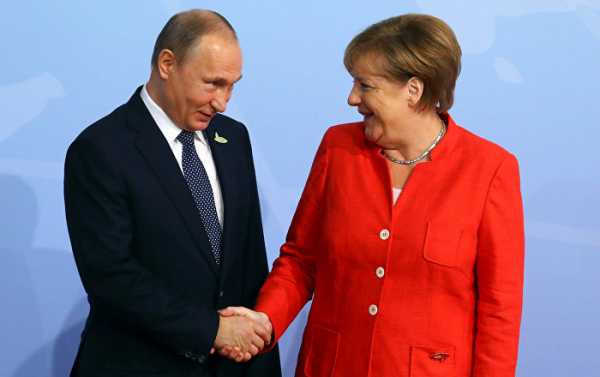
The US’ yearly defense authorization act that passed through the Senate this week contains language that demands the Pentagon to minimize use of Russian energy supplies for US military matters inside Germany.
The National Defense Authorization Act (NDAA), which contains a litany of small, obscure provisions wrapped into one much larger bill stipulating how much the Department of Defense is authorized to spend in the next fiscal year, states that the Pentagon ought to “minimize the use of fuels sourced from inside the Russian Federation.” The lawmakers decided to call this year’s NDAA the “John S. McCain NDAA.”
Lawmakers want to stop the Pentagon from buying energy at a new medical facility in southwestern Germany until the military proves that the energy is not originating in Russia, according to a Thursday Stars and Stripes report.
The new Rhine Ordnance Barracks Army Medical Center is required to use a diversified range of energy inputs in order to be able to keep up “mission critical operations during any sustained energy supply disruption caused by the Russian Federation,” according to a provision in the NDAA. The new medical facility is scheduled to open in 2023.
“Our military now has the chance to demonstrate leadership by strategically reducing our own usage of Russian energy,” Sens. Pat Toomey (R-PA) and Bob Casey (D-PA) said in a July 25 letter addressed to Pentagon chief James Mattis, according to the Stars and Stripes report.
“It all seems to fit in with the broader goal on Capitol Hill, which is to stiffen anti-Russian hostility,” author Daniel Lazare told Sputnik News Thursday. “But is the real target Russia or Germany? Germany is the center of US-NATO operations in Europe, from which it derives enormous economic benefit. But with the Trump administration declaring war on Nord Stream 2, it’s coming at a greater and greater cost as German independence suffers and Washington pushes it toward a broad East European confrontation that could prove disastrous.”
“Berlin should think very carefully about where all this is going,” he warned.
While US lawmakers worry about Russian gas going to one medical facility in Germany, the US has quietly relied on Russia’s RD-180 engines for launching military satellites into space and will continue to do so for years. “
Further, US astronauts flying to meet their international colleagues, including Russian cosmonauts, at the International Space Station rely on Russia’s Soyez Spacecraft and take off from the Baikonur Cosmodrome, leased from Kazakhstan by Russia, but this rare area of mutually beneficial cooperation isn’t often noted in American media report.
As NASA wrote on its Soyuz fact-sheet June 27, “Russia is a big country. Russia helps the United States run the International Space Station. Other countries also help with the space station. But only Russian spacecraft carry people to it right now.”
Sourse: sputniknews.com






